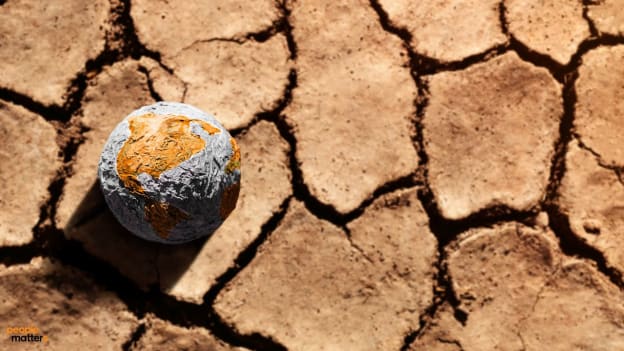World Environment Day: The economic cost of a warming planet

The recent spate of heatwave in Southeast Asia – with record-breaking temperatures across countries – is a crucial reminder of what climate change can do, especially now as we celebrate World Environment Day today.
With temperatures exceeding 40 degrees Celsius, Southeast Asian countries are feeling the impact of climate change on the economic front. Some were forced to suspend onsite work and classes to reduce the risk of heat stroke among the populace.
And it’s not just Southeast Asia facing the economic threat of a warming planet: studies expose potential losses to countries across the globe.
The global impact of changing climates
A study by the International Labour Organization found countries around the world are likely to lose 3.8% of total working hours in seven years due to rising temperatures.
The projected loss would be tantamount to around 136 million full-time jobs or an overall economic loss of US$2.4 trillion.
As the global climate continues to change, income across borders and industries are projected to fall by 19% within 25 years, according to a peer-reviewed study that appeared in the journal Nature.
From food insecurity to rising costs: A domino effect
Agriculture, a cornerstone of many economies, is particularly vulnerable to climate change, particularly rising temperatures. Erratic rainfall patterns and extreme weather events are already causing crop failures, reduced yields, and food insecurity.
The effects of climate change increase the cost of producing food, triggering inflation across basic commodities.
Moreover, the ILO warned that productivity in manual labour jobs can be halved during temperatures exceeding 33-34 degrees Celsius, affecting agricultural output and threatening livelihood.
How infrastructure crumbles
Climate change also wreaks havoc on infrastructure as rising sea levels, floods, and storms damage roads, bridges, buildings, and power grids, leading to costly repairs and disruptions to economic activity.
While investments in infrastructure resilience can create jobs, they also strain resources and displace communities.
The transition to a low-carbon economy offers hope, but it also disrupts the energy sector during its transition period.
While renewable energy creates jobs, it displaces workers in the fossil fuel industry. Reskilling and upskilling are crucial to ensure a just transition and to minimise job losses.
The human cost of climate change
The economic toll spans industries. Extreme weather events, fuelled by climate change, cost the global economy US$313 billion in 2022 alone.
The health of workers is also at risk, with climate-related hazards causing heatstroke, respiratory illnesses, and contagion across communities.
Warmer climates also increase the spread of vector-borne diseases, creating more demands on an already COVID-strained healthcare sector.
Unequal impacts of climate change
The consequences of climate change are not evenly distributed. Developing countries, especially in regions such as Sub-Saharan Africa, South Asia, and Southeast Asia, face the most significant risks.
These agriculture-reliant regions, already grappling with poverty and inequality, are projected to experience even steeper declines in income due to climate change.
This disparity is further highlighted by the fact that over 65 million workers in the US alone are in jobs associated with climate-related health risks, as estimated by US non-profit KFF.
This means that low-income workers, often employed in outdoor or labour-intensive sectors, are more likely to suffer with their health, leading to lost income and increased expenses.
The unequal impacts of climate change underscore the urgent need for global cooperation and equitable solutions.
Wealthier nations, which have historically contributed the most to greenhouse gas emissions, have a moral obligation to support developing countries mitigating the effects of climate change.
This includes financial assistance, technology transfer, and capacity building to help vulnerable communities build resilience and transition to sustainable economies.
Can we still do anything against climate change?
As the world commemorates World Environment Day on 5 June, one message is clear: the choices we make today will shape our economic and environmental future.
The call to invest in mitigation and adaptation strategies, transition to sustainable practices, and prioritise resilience to safeguard our economies and livelihoods has never been more urgent.
But is there still hope? According to a Guardian Report, the human race still has a chance of surviving and mitigating the effects of climate change.
“If emissions fall to net zero by mid-century, income declines will stabilise ... at about 20%,” the report stated, underscoring the potential for a more stable economic future if we act decisively now.
Governments, businesses, and individuals all have a role to play in this critical endeavour, from implementing policies to revaluating current standard operations.
Businesses, in particular, need to reassess their operations through a sustainability lens, prioritise energy efficiency, and actively participate in workforce reskilling initiatives.
Individuals can also make a difference by reducing their carbon footprint, supporting sustainable businesses, and advocating for climate action.
Yes, the threat of climate change is real, but we still have an opportunity to build a more resilient and equitable future.















